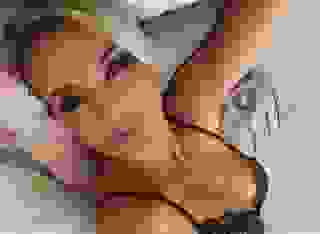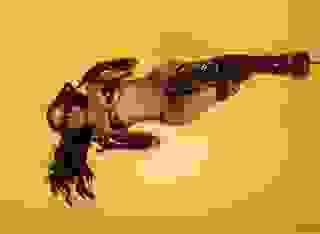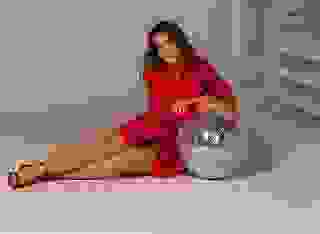- Novels and Novellas
- Like Father Like Son Ch. 04
Note: You can change font size, font face, and turn on dark mode by clicking the "A" icon tab in the Story Info Box.
You can temporarily switch back to a Classic Literotica® experience during our ongoing public Beta testing. Please consider leaving feedback on issues you experience or suggest improvements.
Click hereAugust 1916Return to the Fold
The RE8 was steady at 10,000 feet above the front. Phillip stood in the rear cockpit and scanned the skies for any sign of enemy aircraft. He had been back on the squadron for four days and this was his eleventh patrol. The Huns seemed to have more and more Albatros D IIs in the area now and 14 Squadron had been among the first to feel their effect. Four aircraft had been lost during Phillip’s absence, with two pilots and three observers killed and another pilot wounded. There also seemed to be a lot more ‘archie’ than there had been before he left. All in all, the Albert sector was becoming distinctly bad for one’s health, as Peter Riley had remarked. Peter had been the observer when ‘B’ Flight had been bounced by a dozen D IIs. The big British biplanes were no match for the German scouts in speed, firepower or manoeuvrability. They grimly held formation and hoped that the combined guns of the four RE8s would deter the German pilots long enough for help to arrive.
They had been lucky on that occasion. A Royal Naval squadron of ‘Tripehounds’ – Sopwith Triplanes – had arrived and joined the fight and the Germans had their work cut out. The Tripehound was an amazingly nimble little machine and could turn inside the bigger Hun biplanes. Their three wings made them very quick in the climb and they could rapidly get into the preferred position in a dogfight, above the enemy. ‘Height is might,’ the saying went. If you were higher than the opposition, you could dive down and use your superior speed to swoop underneath the target, get in a quick burst from close range and soar away again. It was even more effective if you could hide in the glare of the sun. That was why the RFC hated the dawn patrols so much. The German aircraft would often be up waiting for them as the British pilots flew eastward, squinting against the harsh brightness.
‘B’ Flight had got home that day without casualties but with their planes shot full of holes. On one, the mainspar was so riddled that the upper wing collapsed on landing and the crew were fortunate to survive the ensuing ground-loop. Still, any landing you could walk away from was a good one. The result of the encounter was that Major Wigram ordered all the squadron machines to be fitted with a twin Lewis mounting for the observer. It wasn’t much but it helped morale. The Lewis guns were a perpetual headache. A single drum held only 47 rounds and the guns were prone to jamming. Most Observers would check the drums were loaded and the spares secured. Phillip, by contrast, was obsessive. He would load each drum himself. He carefully checked each single bullet whether ball, tracer or the explosive ‘buckingham’ rounds. The ‘buckinghams’ were supposed to be used only against static balloons but increasingly, the German Scouts fired explosive bullets against the RFC and there was a growing tendency to retaliate, even if the use of explosive bullets was against the Geneva Convention.
Phillip swung the twin Lewis guns on their Scarff ring as he quartered the sky. He disliked standing in the cockpit but knew it was the only way. Of course, it meant that one couldn’t wear a seat belt and this could be hazardous in the extreme if the pilot was throwing the aeroplane around in a fight. A story was circulating about an air gunner named Whitehead who had been thrown clean out of the cockpit. Whitehead’s guardian angel must have been alert that day because the lucky gunner had managed to grab a wing strut and then get a foot on the lower mainplane and had hauled himself back in. As someone remarked, if he wasn’t Whitehead by both name and nature before that, he probably would have been afterwards!
Pinky Harris blipped the motor to get Phillip’s attention. He gestured, pointing below the starboard lower wing and then grinned, giving the ‘thumbs up.’ Phillip peeled back his smeared goggles and looked where Pinky was pointing. A puff of chalky earth was spreading out on the crest of a low ridge below them. The barrage they had been sent to observe had begun. Phillip wound out the sixty-odd feet of trailing aerial and tapped out the call sign on his Morse key. There was an answering chatter of RRR pause RRR from the gunners’ Forward Observation Officer. Everything was working so Phillip settled down to concentrate on correcting the shoot. It was a relatively simple task. If the shells were bursting short, Phillip sent ‘SSS’ followed by a number – his estimate of the distance short of the target. The gunners corrected their elevation and charges and tried again. Phillip fed them corrections until the barrage was falling firmly on the Hun positions. He would then send ‘OOO’, meaning ‘on target.’
Suddenly the air around him was filled with zip of bullets and tracer rounds slashed past the RE8. Phillip heard the ‘tackatackatacka’ of the enemy aeroplane’s machine guns before a dark shape flashed by so close he swore afterwards he could have touched the tail-wheel. Pinky instinctively swung away from the German machine and Phillip leapt to the Lewis guns. They were under attack by no less than three Huns. Phillip sized up the situation instantly. Their first attacker was wheeling about, seeming to stand on its wingtips as he hurried to return to the fray. The other two were coming on different sides. Phillip let one have a short burst and he saw the aircraft flinch away from the dipping line of his tracers. Good! A novice – or a nervous pilot, at least. He swung back towards the other machine and they opened fire simultaneously.
Pinky pushed the throttle to the stops and corkscrewed to the right. Phillip kept his Lewises trained on the Hun and fired a long burst. He thought he saw bullets striking it in little flashes and the German plane gave a sort of lurch and pulled steeply away. Time to change drums. He pulled off his heavy gloves and wrestled with the awkward fitting on first one Lewis and then the other. He distrusted the double drums and stuck to the 47 round singles. The first attacker was back on their tail. This one meant business! He was closing rapidly, holding his fire. Phillip gave him a short burst from the left-hand Lewis. The tracers arched lazily and harmlessly past the German. He didn’t so much as twitch. Phillip hunched himself lower behind the guns. He felt horribly, personally, vulnerable. He saw the twinkling Spandaus behind the silver disc of the Hun’s propeller and he squeezed off another short burst, this time from the right-hand gun.
Pinky took a quick glance over his shoulder and slammed the joystick to the left, kicking hard on the rudder. They immediately reversed their turn and the German’s tracers whipped past their tail. The Hun pilot flung his machine on its side to follow them. This was the moment! Phillip opened up with both guns and hosed the German from spinner to tail as it hung there. The machine seemed to jump in the air and shudder. One wing folded back and the aeroplane half-rolled onto its back before spinning to destruction. Phillip’s burst must have hacked off a wing root for he saw the damaged wing detach itself from the stricken machine and flutter slowly earthwards like a sycamore seed. The rest of the plane plunged on, faster now, and he glimpsed a bright burst of flame flower briefly on the dark earth as it reached the end of its last journey.
He pulled two fresh drums from the ammunition rack and moved to reload again. One drum stuck fast and he hammered at it with his fists until they bled. Pinky straightened out and dived towards the British lines. Phillip struggled on with the recalcitrant gun. His hands were numb with cold and he was panting from exertion and adrenalin. The two remaining Huns were following, albeit warily. Phillip gave up on the jammed drum and tried to reload the other gun. As he did so, he knocked one full drum off his seat and onto the cockpit floor. As he spun around to pick it, the drum he had been holding slipped from his numb fingers. It bounced once on the fuselage and dropped away. He cursed furiously and scrabbled up the one remaining full magazine.
With trembling fingers, he forced the drum onto the working Lewis and swung it towards the Huns. Once again, they opened fire at extreme range and Pinky was able to evade their tracers with a swift sideslip. Phillip waited. He was chewing his lower lip in concentration. Anger coursed through him. How could have been so stupid! He now had only 47 rounds left and two enemy machines on their tail. The bolder of the two Huns was trying to dive beneath them so he could attack from a blind spot. Phillip stood on his seat and angled the Lewis as far down as he could. Pinky banked the RE8 tightly to the left and Phillip got in a quick burst of ten or twelve rounds before the German pulled away.
The second Hun had sneaked up unnoticed on the other side and he opened fire at about one hundred yards’ range. Phillip watched in amazement as holes appeared in their wing before rounding to face the fresh danger. He fired in quick bursts, no more than momentary taps on the Lewis’s trigger. Again, the nervous enemy pilot pulled up short. The second Hun was back now and Phillip turned again to face him. He got off another two or three bursts and then nothing! He was out of ammunition. The Hun saw this and closed for the kill. In a blind fury, Phillip seized the empty drum off the Lewis and flung it at the German machine. He heard a high voice screaming obscenities at the enemy and was only dimly aware that it was his own. He stooped and seized another empty drum and flung that also, followed by a third. The German pilot pulled up and turned away. He gave Phillip a jaunty wave as he headed off eastwards. Phillip, his anger cooling now, was dumbstruck. Why hadn’t he finished them off? They had been defenceless. Only Pinky’s skill had kept them alive that long. The answer appeared in the shape of a squadron of Vickers FB9s. The two-seater fighters were angling down towards them The Hun pilots had obviously decided that this was one of those occasions that discretion would be the better part of valour.
Reaction set in and Phillip started to shake. His heart pounded in his chest and he felt sick. Pinky flew them home low over the British trenches. Phillip could make out the pale blobs of upturned faces and he thought the troops were waving at them. He looked for his gloves but they must have gone over the side during the fight. He stuffed his frozen hands into his coat pockets and slouched in his seat. He hurt from head to foot. His body had been thrown across the cockpit by the violent manoeuvres during the fight and, although he had been unaware of it at the time, he was bruised from hip to shoulder on both sides from the impacts with the cockpit coaming, radio and ammunition racks.
They landed safely at Bertangles and Pinky brought the wounded RE8 slowly up to the flight line. A crowd of officers was rushing towards them shouting. Phillip felt weary to his bones and heaved himself out of the cockpit like an old man struggling to get out of the bath. He was chilled to the marrow as, even though it was still high summer, the upper air was freezing. Added to that, he had been standing in the blast of the slipstream and propeller wash for over one and a half hours. His head ached abominably and the familiar nausea from the castor oil lubricant was gripping his stomach. He could taste the tainted acid in his mouth and had to force himself to swallow to keep from retching.
He pulled off his helmet with a leaden arm and became aware of the hubbub surrounding him and Pinky. Odd phrases started to penetrate his fuddled mind:
“…bloody young fool, could have killed someone!”
“…landing with the aerial deployed, what were you thinking of?”
He spun in horror. Sure enough, sixty-four feet of wire tipped by a two-pound lead plumb were strewn on the grass behind the aircraft. Pinky came to his rescue.
“Sorry, chaps, we got bounced by three Huns as we finished the shoot. I took evasive action and the aerial got caught around the tailplane.”
Phillip goggled at him stupidly. He had simply forgotten to wind the aerial back in. He turned aft and stared. Sure enough, the wire had bitten deeply into the tailplane, wrapping itself round the wood and fabric a couple of times. Pinky hadn’t realised he’d forgotten the drill. He just assumed that Phillip had been unable to wind the aerial after it had become entangled.
The clamour died a little and Major Wigram stepped forward to peer at the offending article.
“Well, you two nearly bagged the adj and me. We were sitting at the adj’s table when all of a sudden the bloody thing took flight! You snagged it with the plumb as you came in, Pinky. That bloody great lump of lead passed between our heads. The adj is frightfully upset. All the morning patrol reports are scattered to the four winds and he’ll have to start over. Oh well, no real harm done, what? Better go and give your report.”
One of the armourer NCOs approached Phillip as he was standing staring at the faces around him.
“Begging your pardon, Mr Welford Barnes, sir, but you don’t seem to have any Lewis drums in the kite.”
Phillip nodded.
“Oh, sorry, corporal. I ran out of ammunition so I threw them at the Huns.”
The Major was incredulous. “You did what?”
“Threw them at the Huns, sir. Uh, I didn’t have anything else. I think I’d have thrown the radio too, only it’s a bit too heavy.”
“And Phillip bagged one of the blighters, Wiggy,” said Pinky. “Went down close to the lines. Artillery should be able to confirm.”
“With a Lewis drum?” Major Wigram was gaping at them both as if they had taken leave of their senses.
“No, sir. Before I ran out. Pinky did some splendid flying and sort of caught the Hun on the hop. He turned a bit too late and I… got lucky, I suppose. One of his upper planes snapped off and down he went. Then the other Huns closed in and I dropped a full magazine over the side because the drum jammed on the right Lewis and I’d taken my gloves off…”
“So you could throw better, I assume? No. No more, Phillip, and none of your nonsense either, Pinky. It’s too much for an old man’s sensibilities. Go and tell the adj all about it.”
They shambled off to where the adjutant had re-erected his table.
“Good God, Phillip. Did you really throw the empty drums at the beggars?”
“Yes, adj. I’m sorry. I didn’t think – wasn’t thinking really.”
“Oh no, old boy, it’s brilliant. One for the squadron annals, that is!”
A couple of days later, a new ‘trophy’ appeared in the Officers’ Mess. It was a battered Lewis Drum, painted scarlet and with an engraved brass plate bearing the legend: “The Welford-Barnes Hun Trap. Patent pending.”
Phillip’s first ‘kill’ was duly confirmed and the squadron threw a ‘drunk’ in his honour. The party was wild and frantic and many a sore head assembled the following morning for the dawn patrol. The Somme offensive ground on and on. Progress was measured in yards rather than the hoped for miles and German resistance showed no signs of weakening. The aircrews were exhausted. Day after day of clear skies meant almost constant flying. Even when the weather was marginal, they flew anyway. Struggling through low cloud, with rain like icy bullets rattling off the fabric of the machines, they performed wonders. Reconnaissance, artillery spotting, contact patrols; one followed another in an endless round. Nerves became frayed and tempers short. Only Major Wigram, through a supreme effort of will, retained the outward appearance of calm. His leadership held the Squadron together. When, on the 19th August, a shell from the British barrage he was observing obliterated his plane, the Squadron was shattered.
More and more new faces appeared in the Mess to replace the mounting casualties. Pinky Harris was given the temporary rank of Major and appointed to command the Squadron. ‘Old Hands’ like Peter and Phillip were few and far between. Thus it came as a glorious relief when, at the end of the month, a weather front brought two days of solid cloud, high winds and rain. News reached the squadron that Phillip had been awarded the Military Cross for his efforts during the Somme Offensive and there was news, too, of a different sort. Flying Corps casualties had been heavy, particularly among the ranks of the pilots. HQ was now calling for suitable volunteers for flying training. Peter brought the news of this request to Phillip.
“I say, Phillip, here’s your chance! Wiggy did promise you that you could go home after fifty missions as an ‘O’ and you must have done nearly three times that many.”
Phillip looked up from the letter he was writing to Bethan. He looked ghastly, thought Peter, but then, they all did. Even Pinky Harris’s fresh complexion, which had earned him his soubriquet, was wan and grey. Peter thought Phillip had suffered more than most. Flying with Pinky, Phillip always seemed to draw the most dangerous patrols. Pinky would never dream of ordering a pilot to undertake a mission that he wouldn’t do himself. In fact, Peter thought, Pinky was a bit obsessive on this point. He drove himself, and consequently Phillip, harder than anyone else. A chap only had so much luck. Pinky was probably overdrawn on his share.
It had taken Peter’s words a few moments to register in Phillip’s tired mind. The previous night’s party had left him jaded and the damp weather always made his old leg wounds ache. He rubbed his eyes and blinked up at Peter.
“D’you really think so? I’ve only been out here five months and it wasn’t that long ago I had sick leave – even if it does seem like an eternity since then.”
“Well, no harm in trying, is there, old man? Oh, and by the by, your old mob are in reserve near Bouzincourt. I heard they got knocked about a bit taking Longueval. Thought you might like to pay them a visit while it’s ‘napoo’ here.”
“I think I might do that tomorrow, Peter. I’ve letters to write and I need to see Pinky about the pilots’ course. I tell you what, why don’t we go together? Brian Redbourne’s a splendid fellow and he’ll be sure to give us a welcome.”
“Good Egg! Let’s do that. Now off you trot and see Pinky. Strike while the iron’s hot and all that rot.”
“What about you, Peter? Are you going to apply?”
“Oh, I don’t think so, old chap. I mean, look at me. I’m far too lanky. I think I’ll just stick in the back where there’s a bit more room. If I put my feet on a rudder bar my knees would be under my chin. Thank God for the ‘Harry Tates.’ It was murder in the old BE2s. And my driver was always complaining that he couldn’t see over the magnificent Riley bonce. My head stuck up so far it was permanently in the prop wash.”
Phillip had to smile. Peter stood something over six feet three and his big raw-boned frame was a tight squeeze into any cockpit. He always looked untidy, somehow, however smartly he was dressed and his huge hands and feet looked as if they had been stuck onto his long limbs as an afterthought. Phillip looked at his friend with amused affection and then said:
“Peter, I’ve asked Bethan to marry me. If she does say ‘yes,’ would you be so kind as to stand up with me?”
“Phillip, I’d be both honoured and delighted. And what d’you mean ‘if she says yes?’ Only a mad woman would refuse a dashing young aviator such as your good self!”
“I do hope so, old man. I asked her over a month ago and she still hasn’t given me her answer. I don’t want to press her, you know, in case it puts her off, but what’s a chap to do? I think about her all the time, unless we’re over Hunland. Then, well, one is rather preoccupied with other concerns.”
“Ha! Aren’t we though? I really think the blighters are getting better, you know. That chap, Bolcke, is supposedly in our sector now. From what I hear, he should liven things up a bit.”








